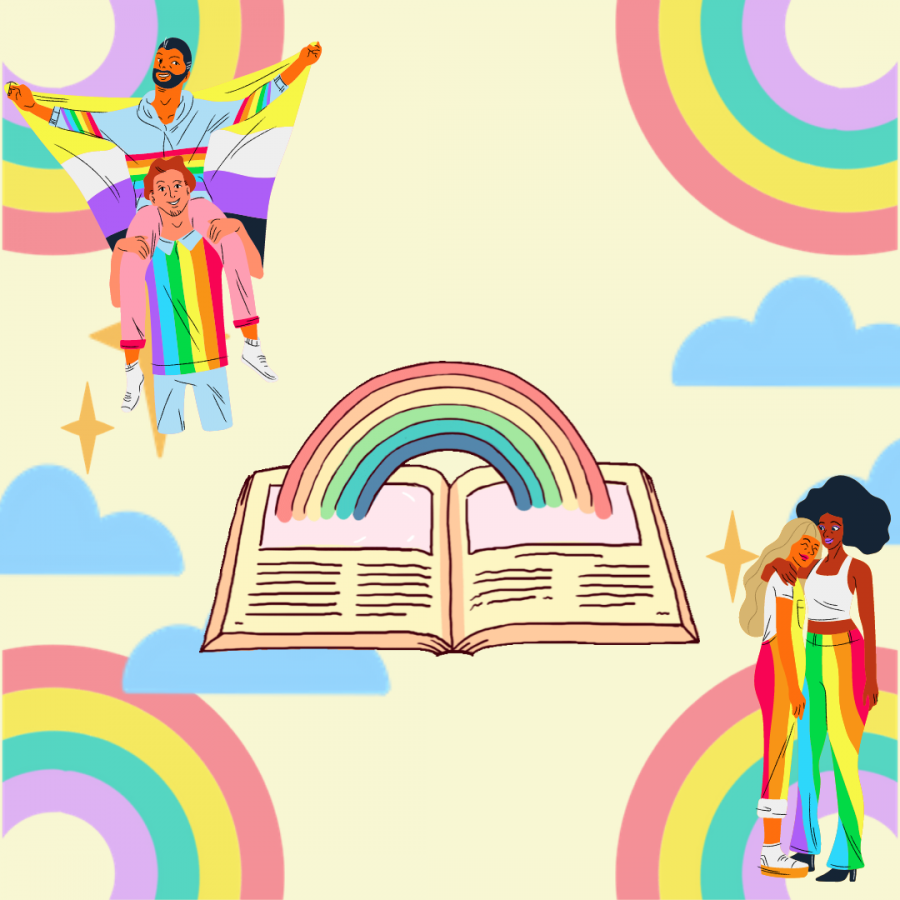Students learn about LGBTQ+ community in social studies
Last summer, Gov. Pritzker signed the LGBTQ+ Inclusive Curriculum Bill, which stated that at the beginning of this school year, all Illinois public schools are required to include the contributions of LGBTQ+ people in their history curriculum. Illinois is the fifth state to enact this legislation, after California in 2011 and New Jersey, Colorado and Oregon in 2019.
According to a TSP survey conducted with 56 students, 73.2% of students were previously unaware that this bill existed and was passed in the state legislature; this bill affects all public schools in the state.
Allison Klemstein (11) was unaware of the bill’s passage, but after learning about it, she said she was pretty happy about it.
“I think it’s important for history, and any humanities classes, STEM classes as well, to include contributions from all people,” she said.
Klemstein said that she felt that as she got older, her classes have gotten better at including people of color and their contribution to history, but she felt like LGBTQ+ contributions [in curriculum] have lagged behind.
The Inclusive Curriculum Bill states that public school history curriculum “shall include a study of the roles and contributions of lesbian, gay, bisexual and transgender people in the history of this country and this State” (Illinois General Assembly).
Although this state requirement went into effect last August, VHHS history curriculum was already meeting the stated requirements of the Inclusive Curriculum Bill.
“[The curriculum] was already being implemented in a lot of our classes,” Mr. Mann, the Social Studies Department Chair, said. “We didn’t really have to make any adjustments once this bill came out, which was great.”
Mr. Mann said that in his opinion, every social studies teacher approached teaching topics like LGBTQ+ rights and important roles played by leaders in the community in an excellent way; these topics are usually covered in the Civil Rights unit.
Specifically, the American Studies class has a unit on the play “The Laramie Project,” a production centered around the reaction to the 1998 murder of a gay University of Wyoming student named Matthew Shepard.
AP and college-prep Government cover Supreme Court cases regarding LGBTQ+ rights like the 1972 case Baker v. Nelson, which brought up the issue of marriage equality for the first time, and the 2015 case Obergefell v. Hodges, which required states to license and recognize same-sex marriage.
Mr. Mann also mentioned that courses such as U.S. History and Psychology all cover different aspects of LGBTQ+ history and contributions in their respective fields. U.S. History, for example, covers the Stonewall Riots and the AIDS epidemic, and Psychology covers the upbringing/experiences of LGBQT+ individuals in the Developmental Psychology unit.
Aside from Social Studies classes, the curriculum for English classes like Social Justice Literature and Contemporary Fiction spark discussion about the LGBTQ+ community. Units for Social Justice Literature include heterosexism, racism, transgender oppression and sexism, and Ms. Tara Nieves, the English Department chair, said that the class is all about highlighting the good as opposed to just oppression of a certain group.
The bill also states that textbooks purchased by public schools must “include the roles and contributions of all people protected under the Illinois Human Rights Act” (Illinois General Assembly). One protected class under the Act is sexual orientation, including gender-related identity.
The department’s history textbooks also already included LGBTQ+ history, contributions and roles of members of the community, as required by the newly amended state bill. The AP U.S History textbook covers events like the Gay Liberation Movement in the 60s and 70s, the Don’t Ask Don’t Tell policy under the Clinton Administration and George W. Bush’s attempt to add a constitutional amendment banning gay marriage.
The school had to prove they were meeting the social studies curriculum requirements to the state. Mr. Mann said the department went under a thorough audit to supply the state with this information on the social studies curriculum.
“Part of the reason why we did this audit was to prove to the state that we are actually applying this law in our classrooms, [and] they go through these audits,” Mr. Mann said. “You have to provide evidence of your curriculum, sometimes even specific in-class activities that are being done.”

